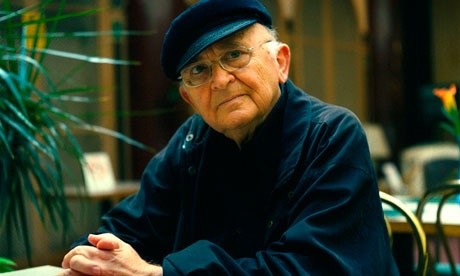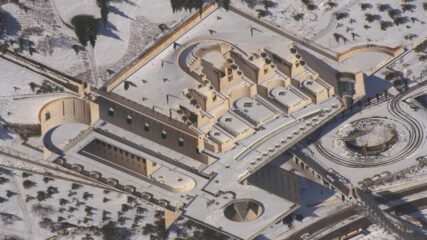February 16, 1932
Aharon Appelfeld, an Israeli author, professor and Holocaust survivor is born near Czernowitz, then part of Bukovina, Romania, today in Ukraine. Appelfeld’s family was secular and assimilated into German culture, even banning the use of Yiddish in their home. In 1941, the Nazis, together with collaborating Romanians, killed his mother and grandmother and deported Aharon and his father to a concentration camp. Escaping from the camp alone when he was ten years old, he would spend the next several years on the run, hiding in the Ukrainian countryside before joining the Russian army as a kitchen boy in 1944.
Appelfeld arrived in Palestine in 1946 following several months in a Displaced Persons Camp in Italy. There he would resume his studies because he had only completed the first grade before the Nazis occupied his town. After completing his army service, he enrolled at the Hebrew University where he also began writing.
In the early 1950’s, Appelfeld found his father’s name on a Jewish Agency List of survivors. Separated when he had escaped from the concentration camp in 1941, he discovered that his father was also in Israel and living in the ma’abara (transit camp in Be’er Tuvia). Recounting their reunion in an interview, Applefield remarked, “He had been at Be’er Tuvia for 10 days already, found a job and was working as a fruit-picker. I go to the grove and ask where he is, they tell me, ‘In that tree.’ I see a ladder, and on the ladder stands a very old Jew. I address him in German and say, ‘Herr Appelfeld?’ and he comes down the ladder, looks at me and cannot speak a single word, only the tears flow down his face. And for a whole day he could not speak a word, just this terrible crying. He does not tell me that he is my father, I do not tell him that I am his son.”
Often drawing upon his childhood experiences, many of his works depict European Jews in the World War II era. Titles such as For Every Sin, Tzili, Iron Tracks and The Healer gained him notoriety as a writer, catalyzing his receipt of the Bialik Prize in 1979 and the Israel Prize in 1983. Many of his works have been translated from Hebrew. He is the professor emeritus of Hebrew literature at Ben Gurion University of the Negev. The photo of Appelfeld is by Antonio Olmos.










